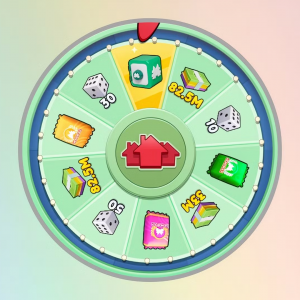Navigating the Moral Maze: Understanding Ethical Boundaries in Academic Writing Assistance
The proliferation of academic writing services has created a complex ethical landscape Pro Nursing writing services for nursing students navigating the rigorous demands of BSN programs. Advertisements promising expertly crafted papers, guaranteed high grades, and effortless academic success flood students' social media feeds and search results, presenting tempting shortcuts to overwhelmed learners juggling clinical rotations, coursework, and personal responsibilities. Yet behind these enticing promises lies a web of ethical considerations that every nursing student must understand. The choices students make about writing assistance carry implications far beyond individual grades—they shape professional character, impact learning outcomes, and ultimately affect the quality of care future patients will receive. Understanding where legitimate educational support ends and unethical practice begins is not merely an academic exercise but a fundamental aspect of professional formation in nursing.
The Spectrum of Writing Services: From Support to Substitution
Writing services exist along a broad spectrum, and not all assistance qualifies as unethical. At one end lie clearly legitimate resources: university writing centers, librarian consultations, faculty office hours, and peer tutoring programs. These services provide instruction, feedback, and guidance while ensuring students complete their own work. They operate on educational principles, helping students develop skills and understanding rather than simply producing finished products. Most nursing programs explicitly encourage students to utilize these resources, recognizing that learning to write effectively requires coaching and practice.
Moving along the spectrum, commercial tutoring services and editing companies occupy more ambiguous territory. Some operate ethically, offering one-on-one instruction similar to university resources but with more flexible scheduling or specialized expertise. These services might help students understand assignment requirements, provide feedback on draft work, teach research strategies, or explain APA formatting rules. When used appropriately, such services can legitimately supplement institutional support, particularly for students with limited access to campus resources due to distance learning formats or scheduling conflicts with clinical rotations.
However, other commercial services cross ethical lines by essentially completing assignments for students. These "paper mills" produce custom essays, research papers, and even entire capstone projects that students submit as their own work. Regardless of how such services market themselves—as "model papers," "research assistance," or "tutoring"—their purpose is enabling students to submit work they did not produce, which constitutes academic fraud. The fact that students pay for such services rather than copying freely available work doesn't diminish the ethical violation; if anything, it compounds the dishonesty by adding financial transaction to academic deception.
Why the Distinction Matters in Nursing
Some students rationalize using paper mill services by arguing that their clinical nursing essay writing service skills matter more than writing ability, or that artificial academic requirements distract from practical nursing education. This perspective fundamentally misunderstands both the purpose of writing in nursing education and the relationship between academic integrity and professional ethics. Writing assignments in BSN programs serve multiple critical functions beyond assessing grammar and composition skills.
First, writing assignments require students to engage deeply with nursing knowledge, synthesizing information from multiple sources, applying concepts to clinical scenarios, and developing evidence-based reasoning. A student who submits a purchased paper on evidence-based practice guidelines for diabetes management has bypassed the cognitive work of researching, analyzing, and integrating that knowledge—work that would have prepared them to actually implement such guidelines in clinical settings. The writing process itself constitutes learning; outsourcing the writing outsources the learning.
Second, writing assignments develop critical thinking skills essential for safe nursing practice. When students analyze case studies, evaluate research evidence, or reflect on clinical experiences through writing, they practice the same analytical and evaluative thinking they'll need when assessing patients, identifying problems, and determining appropriate interventions. A nurse who hasn't developed these cognitive skills through authentic academic work will be less prepared to think critically in clinical situations where lives depend on sound judgment.
Third, academic integrity directly correlates with professional integrity. The nursing profession's foundational ethics—honesty, accountability, trustworthiness—must characterize nurses' behavior in all contexts. A student who cheats on academic assignments demonstrates a willingness to prioritize personal benefit over ethical obligations, precisely the character flaw that leads to documentation fraud, medication errors through shortcuts, or failure to advocate for patients when doing so proves inconvenient. Academic dishonesty doesn't occur in a moral vacuum separate from professional behavior; it reveals and reinforces character patterns that will manifest in clinical practice.
The Consequences Beyond Grades
Students contemplating using unethical writing services often focus narrowly on immediate benefits—saving time, ensuring good grades, reducing stress—while minimizing potential consequences. Yet the risks extend far beyond the possibility of failing assignments or facing disciplinary action, serious though those consequences are. Many nursing programs dismiss students for academic integrity violations, ending their nursing careers before they begin. Even students who avoid detection face longer-term consequences that compromise their professional development and future practice.
Most immediately, students who submit work they didn't produce fail to develop the nurs fpx 4045 assessment 3 competencies those assignments were designed to build. They enter clinical practice with gaps in knowledge, deficits in critical thinking, and inadequate research skills. These deficiencies may not be immediately apparent but will emerge when they encounter clinical situations requiring the understanding they pretended to possess. A nurse who purchased papers about evidence-based practice won't know how to locate, evaluate, and apply research when caring for patients with complex conditions not covered in basic nursing education.
Additionally, students who engage in academic dishonesty often experience ongoing anxiety about being discovered. They may fear that anyone reviewing their academic work will notice inconsistencies in quality or style that suggest outside authorship. This anxiety can persist into professional practice, creating stress and undermining confidence. Moreover, students who begin their careers through dishonest means often struggle with impostor syndrome—the persistent feeling that they don't belong in their roles and will eventually be exposed as frauds—because at some level, they know their credentials don't represent authentic achievement.
The psychological and emotional toll of maintaining academic dishonesty shouldn't be underestimated. Many students who use paper mill services report feelings of guilt, shame, and disconnection from their educational experience. Rather than feeling proud of their accomplishments and confident in their abilities, they live with the knowledge that their success is fraudulent. This psychological burden can interfere with learning in courses where they do complete authentic work and can diminish the satisfaction that should accompany earning a hard-won BSN degree.
Identifying Red Flags in Writing Services
Given the spectrum of writing assistance available, nursing students must develop discernment about which services operate ethically and which facilitate academic fraud. Several red flags indicate services that cross ethical lines. Any service that offers to write complete papers for students rather than teach them to write their own papers operates unethically. Language like "custom written," "we'll write your paper," or "guaranteed A grades" signals services designed to produce work students will fraudulently submit as their own.
Similarly, services that promise confidentiality or anonymity often do so because they facilitate cheating. Legitimate educational services don't need to hide their role; they're proud to help students learn. Services emphasizing that "professors will never know" or promising to evade plagiarism detection software explicitly acknowledge they're helping students deceive their institutions. Pricing structures can also reveal service intent—fees of hundreds of dollars for single papers typically indicate the service is producing completed work rather than providing tutoring or editing.
Students should also be wary of services that don't require meaningful engagement nurs fpx 4055 assessment 2 with the student or the assignment. Ethical tutoring involves dialogue, instruction, and iterative feedback on student-produced work. Services that simply request assignment details and deliver completed papers bypass the educational process entirely. Additionally, services operating primarily through social media, messaging apps, or anonymous websites often do so to avoid accountability and oversight, another indicator of unethical practice.
Making Ethical Choices Under Pressure
Understanding ethical boundaries is one thing; maintaining those boundaries under pressure is another. BSN students face genuine challenges—overwhelming workloads, inadequate time, competing responsibilities, and high-stakes assessments. When facing a deadline with an incomplete assignment, the temptation to seek unethical assistance can feel overwhelming. However, these pressure moments offer opportunities to practice the ethical decision-making students will need throughout their careers.
When tempted to use unethical services, students should pause and consider several questions. First, would I be comfortable explaining this choice to my faculty advisor, clinical preceptor, or future patients? If the answer is no, the choice likely violates ethical standards. Second, what are the legitimate alternatives? Often, students considering unethical shortcuts haven't fully explored legitimate options—requesting extensions, utilizing campus resources, seeking additional instruction, or adjusting priorities to create time for completing assignments authentically.
Third, students should consider what this choice reveals about their professional character. One of nursing's core competencies is ethical decision-making, including the courage to do what's right even when it's difficult or inconvenient. A student who cheats under pressure demonstrates that convenience and self-interest can override ethical obligations—precisely the character flaw that leads to ethical breaches in clinical practice. Conversely, students who struggle through assignments honestly, even when the work is difficult and the result imperfect, demonstrate the integrity and perseverance that characterize excellent nurses.
Building Support Systems for Ethical Success
Rather than relying on ethically questionable commercial services, nursing students should proactively build support systems that enable authentic success. This begins with utilizing institutional resources fully—writing centers, library services, academic advisors, and faculty office hours. Students should establish relationships with these resources early in their programs rather than waiting until they're desperate. Many students discover that regular writing center appointments, scheduled throughout the semester, prevent the crisis situations that tempt them toward unethical choices.
Peer support networks also provide valuable assistance within ethical boundaries. Study nurs fpx 4035 assessment 4 groups where students discuss assignments, share strategies, and review each other's draft work can enhance learning while maintaining academic integrity. The key is ensuring collaboration focuses on understanding and skill development rather than producing identical work. Students should also communicate with faculty when facing challenges. Most instructors would rather grant extensions or provide additional support than have students resort to academic dishonesty out of desperation.
Finally, students should develop realistic expectations about grades and performance. The pursuit of perfect GPAs can drive students toward unethical choices that ultimately undermine the competence those grades are supposed to represent. A B grade on an assignment completed honestly represents genuine learning and accomplishment; an A grade on fraudulent work represents nothing. Students who maintain perspective about grades and focus on authentic learning typically find both success and satisfaction in their BSN programs.
Conclusion
The ethical considerations surrounding writing services in nursing education extend far beyond rule-following or risk-avoidance. They touch the core of what it means to become a nursing professional—someone entrusted with human lives and wellbeing. Every choice students make about how to approach their academic work shapes their professional character and competence. By understanding ethical boundaries, recognizing warning signs of fraudulent services, and building legitimate support systems, nursing students can navigate BSN challenges with integrity while developing the authentic capabilities their future patients deserve.
more articles:
Strategic Academic Support: Maximizing Efficiency and Mastery in BSN Programs
Writing the Path to Nursing Excellence: Professional BSN Support







